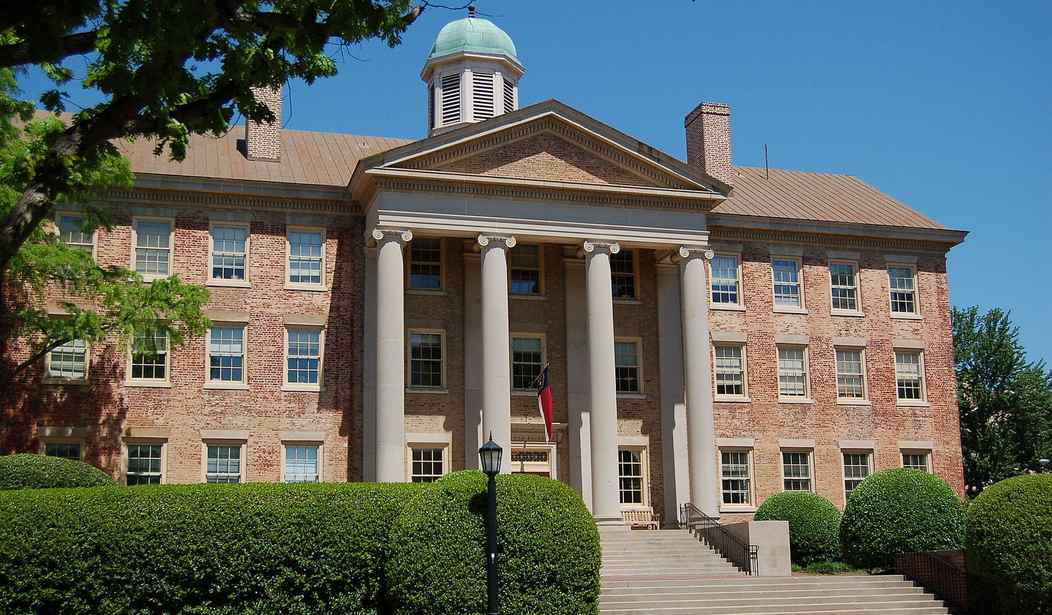In what has been called one of the worst academic scandals in history, the NCAA won’t be punishing the University of North Carolina at Chapel Hill for offering fake classes that benefited student athletes, because it couldn’t find any NCAA rules that were actually violated by the university.
The ruling means no UNC athletes will be punished, and the university will not lose any of its championship titles. UNC basketball coach Roy Williams has always maintained that the sports program never did anything wrong.
While the NCAA admitted that there was academic fraud over 18 years in the African Studies program, it determined that it did not have the power to punish the university.
Greg Sankey, commissioner of the Southeastern Conference, said the NCAA could not prove that the courses were “solely created, offered and maintained as an orchestrated effort to benefit student-athletes”—despite the fact that many student athletes did benefit from the courses. The infractions committee, he said, was powerless to punish the university for classes offered to all members of the student body and not student athletes in particular.
The ruling is not altogether unexpected, but that does not soften the blow for those who think UNC should be held to account by the NCAA for academic fraud.
“The public is definitely going to hammer the N.C.A.A. if they don’t do something,” Joshua Smith, the assistant athletic director for compliance at Eastern Illinois University, told The New York Times. “You’re looking at bogus classes. The N.C.A.A. wants to take back their reputation that they really are academically focused first, putting the student ahead of the athlete, and this is an issue where they can do that.” However, he said, “if you look deeper, it’s difficult to say what bylaw exactly comes up that they should be punished for.”
North Carolina has said that the fraud was confined to its academic side, over which the N.C.A.A. has no claim. Though convenient, this stance is consistent with profoundly held principles of scholarly independence. North Carolina even has cited N.C.A.A. President Mark Emmert, who in 2015 said, “It’s ultimately up to universities to determine whether or not the courses for which they’re giving credit, the degrees for which they’re passing out diplomas, live up to the academic standards of higher education.”
This defense also plausibly lines up with the facts in the case (the athletics counselors, for instance, worked for the College of Arts and Sciences, not the athletic department).
As reported in The New York Times:
The scheme involved nearly 200 laxly administered and graded classes — frequently requiring no attendance and just one paper — over nearly two decades. Their students were disproportionately athletes, especially in the lucrative, high-profile sports of football and men’s basketball. They were mostly administered by a staff member named Deborah Crowder. In many cases, athletes were steered to the classes by athletics academic advisers.
The scandal was so serious that the university’s accreditation body briefly placed the institution on probation.
In its latest notice of allegations, which is the N.C.A.A. equivalent of a lawsuit or indictment, the N.C.A.A.’s enforcement staff pointed to the high enrollment of athletes in the classes — nearly half, according to the university-commissioned investigation led by Kenneth L. Wainstein — and emails in which advisers requested spots for athletes.
U.N.C. had contended that the case was fundamentally academic in nature, and that athletics staffers were at most tangential to it. They cited instances in which similar misconduct was alleged at Auburn and Michigan, and the N.C.A.A. did not act.
As expected, some response to the ruling has been highly critical. The News and Observer, which originally exposed the “paper classes,” said the NCAA punted the UNC case, exposing itself as powerless and obsolete.
“If the NCAA can’t punish North Carolina for decades of what was clearly, to any outsider, academic fraud designed to keep athletes eligible, what’s the point?” Luke Decock writes. “Already exposed as feeble and inept by the FBI, which shed more light on the seedy side of basketball recruiting in one pun-laden press conference than the NCAA ever has, Friday’s admission that it has no way to punish North Carolina for decades of self-described scandal opens the door to fake classes everywhere.”
As of Friday, there’s no reason for any athlete to be called a “student-athlete” anymore. They’re just athletes, because the NCAA is powerless to enforce the other half of its beloved phrase. And as if it just couldn’t resist applying a coda to highlight this, the NCAA ruled N.C. State freshman Braxton Beverly ineligible for having the temerity to attend a summer school class at Ohio State, the kind of capricious nonsense at which the NCAA excels.
The NCAA can knock around a kid who transferred before his freshman year even really began, but years of academic fraud to benefit athletes remain outside its purview.
The NCAA, however, says its policy is clear and that it acted appropriately. “The NCAA defers to its member schools to determine whether academic fraud occurred,” Sankey said, “and, ultimately, the panel is bound to making decisions within the rules set by the membership.”









Join the conversation as a VIP Member